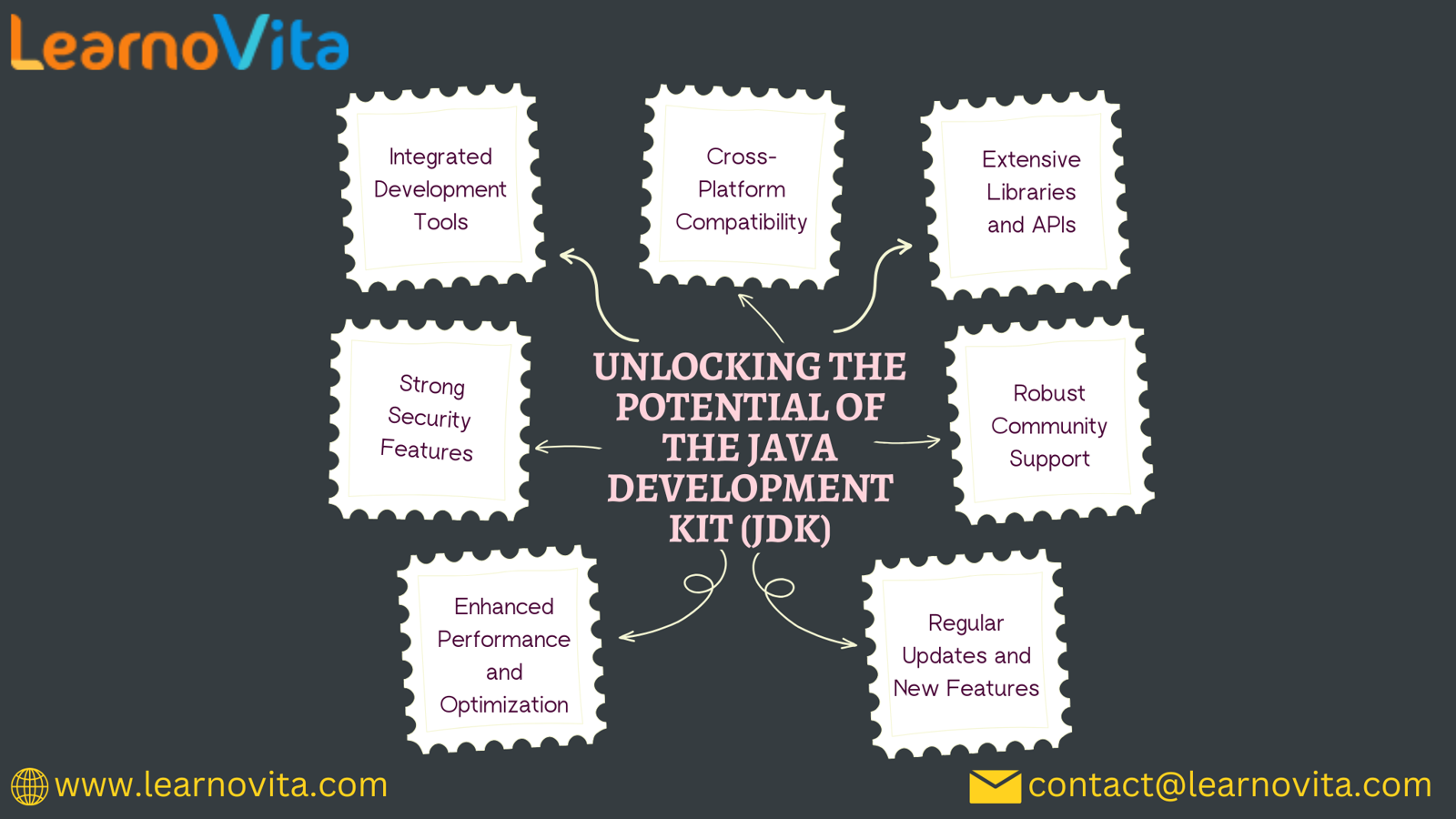The Java Development Kit: What It Is and Why You Need It

What is the Java Development Kit (JDK)?
The Java Development Kit (JDK) is a comprehensive software development environment provided by Oracle for developing Java applications. It consists of a collection of tools, libraries, and resources that enable developers to write, compile, and debug Java programs. The JDK is an all-in-one solution for anyone involved in Java development, whether you’re building a simple application or a complex enterprise system.
Key Components of the JDK
-
Java Compiler (javac): The JDK includes a compiler that translates Java source code written in
.javafiles into bytecode, which can be executed by the Java Virtual Machine (JVM). This process checks for syntax errors and generates files containing the compiled bytecode. -
Java Runtime Environment (JRE): The JRE is a part of the JDK that provides the libraries and components necessary for running Java applications. While the JDK includes the JRE, the JRE can also be used independently for executing Java programs.
-
Java Virtual Machine (JVM): The JVM is the engine that runs Java bytecode. It allows Java applications to be platform-independent, executing the same bytecode on any operating system that has a compatible JVM.
-
Development Tools: The JDK offers a variety of development tools, including debugging tools documentation generation tools and performance monitoring tools. These tools help streamline the development process, making it easier to create high-quality applications.
-
Java APIs: The JDK includes a rich set of Application Programming Interfaces (APIs) that provide pre-built classes and methods for common tasks, such as file handling, networking, and graphical user interface (GUI) development.
Why You Need the JDK
1. Integrated Environment for Development
The JDK provides a complete set of tools necessary for Java development in one package. This integration simplifies the development process, allowing developers to focus on writing code rather than managing multiple tools.
2. Cross-Platform Development
Java’s “write once, run anywhere” philosophy is made possible by the JDK. It allows developers to create applications that can run on any platform with a compatible JVM. This versatility is a significant advantage, particularly for applications that need to reach a diverse audience.
3. Access to Extensive Libraries
The JDK comes with a wealth of libraries and APIs that save developers time and effort. By utilizing these pre-existing resources, developers can implement features quickly and efficiently, avoiding the need to write code from scratch for common functionalities.

With the aid of Best Software Training Institute programs, which offer comprehensive training and job placement support to anyone looking to develop their talents, it’s easier to learn this tool and advance your career.
4. Strong Community Support
5. Regular Updates and Enhancements
Oracle frequently updates the JDK, introducing new features, performance improvements, and security enhancements. This commitment to continuous improvement ensures that developers have access to the latest tools and technologies.
6. Performance Optimization
With each new release, the JDK includes optimizations that enhance the performance of Java applications. These improvements lead to faster execution times and better memory management, ensuring that applications run smoothly and efficiently.
7. Security Features
Java is designed with security in mind, and the JDK provides various built-in security features that help developers create safe applications. These include a robust permission model and measures to protect against common vulnerabilities, allowing developers to build applications that safeguard user data.
Conclusion
The Java Development Kit (JDK) is an essential tool for anyone involved in Java development. Its comprehensive feature set, cross-platform capabilities, and strong community support make it indispensable for creating high-quality applications. By understanding what the JDK is and recognizing its importance, developers can harness its power to build innovative solutions that meet the demands of today’s technology landscape. Whether you are a beginner or an experienced programmer, the JDK is your gateway to the world of Java development.

Comments
Post a Comment